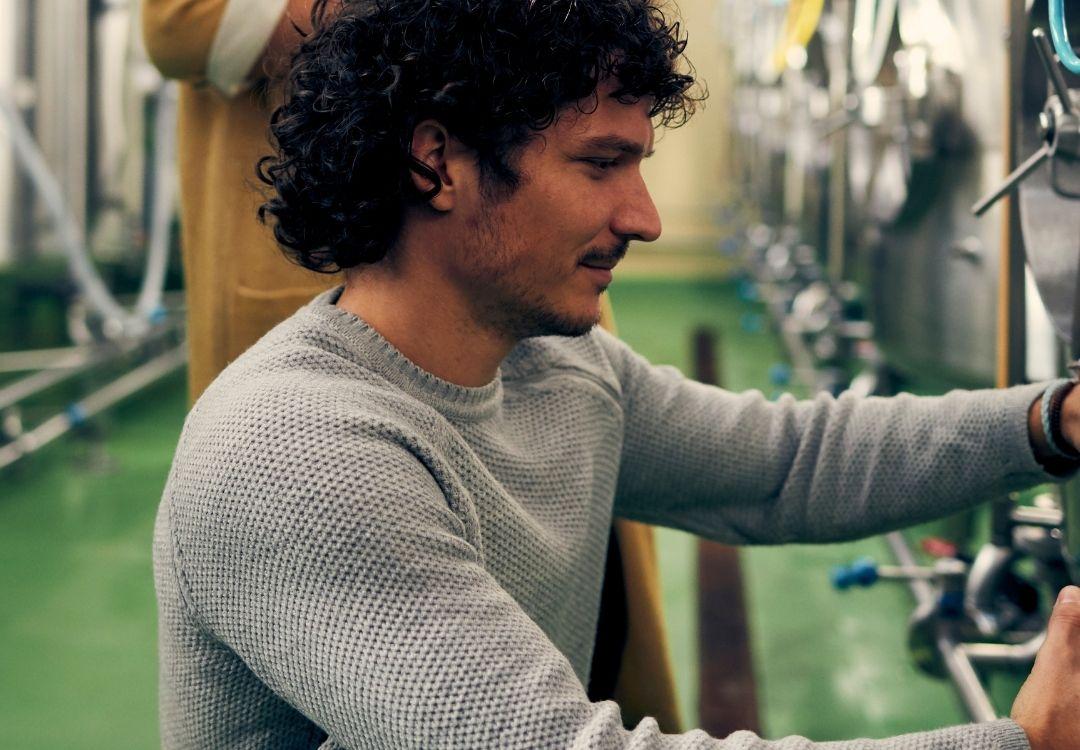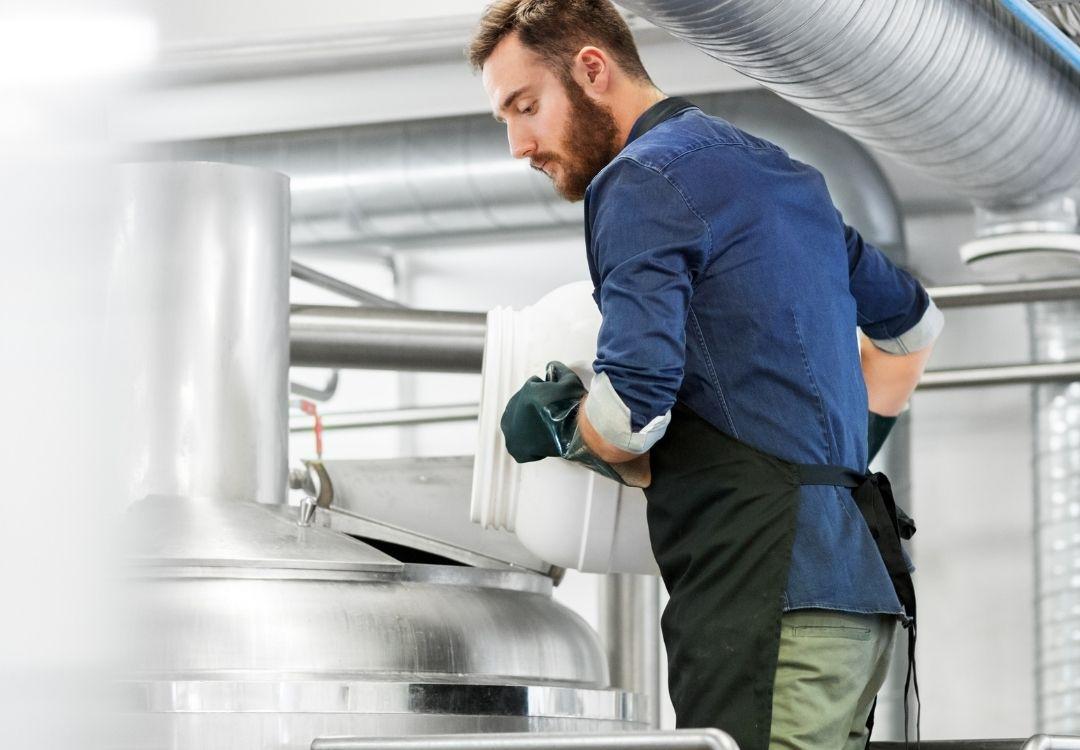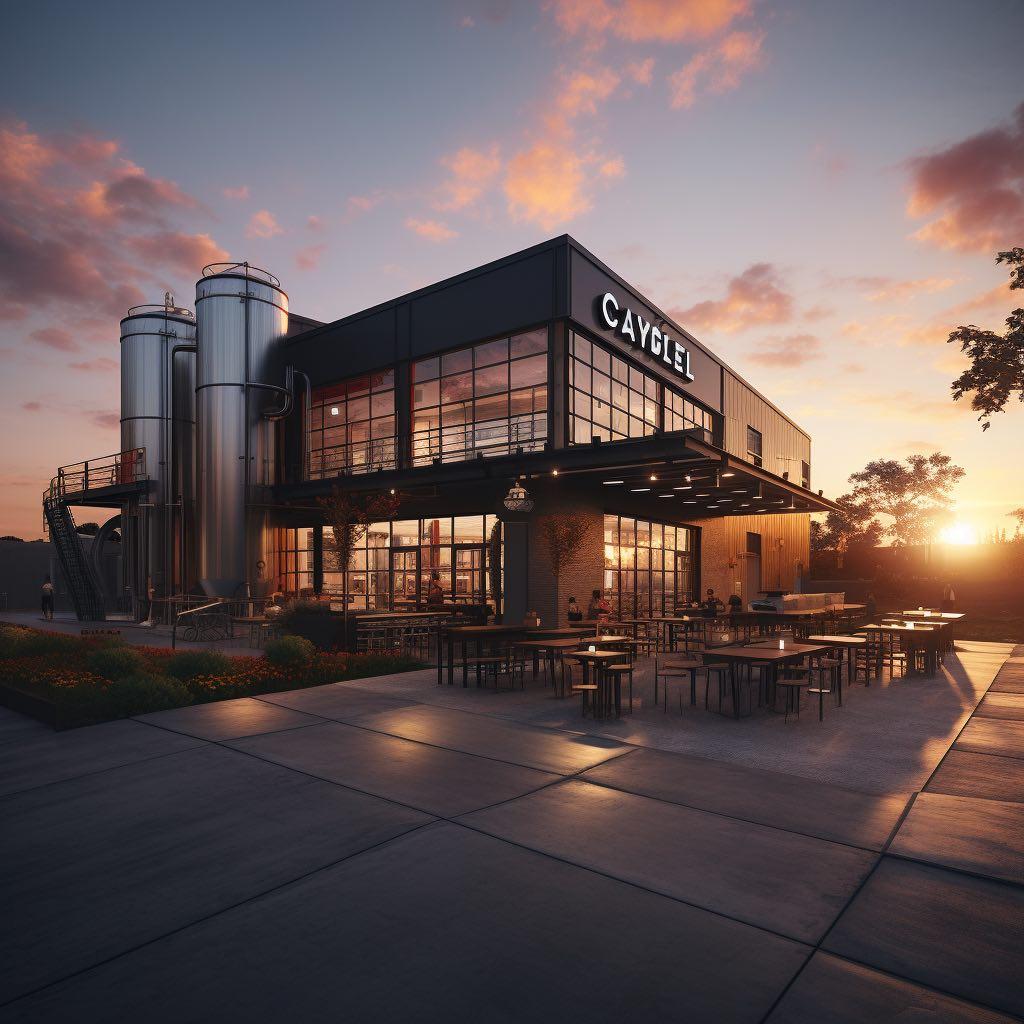

Certainly! Here’s a short essay on "Business Interruption Insurance for Microbreweries," focusing on operational risks and incorporating the least probable word every six words:
The Allen Thomas Group .
---
In the effervescent world of microbrewing, entrepreneurs often toast to creativity and community. Yet, amidst these bubbly aspirations lurk hidden perils unique to this niche industry. Business interruption insurance emerges as an essential shield, safeguarding against unforeseen disruptions that could ferment into financial hardship.
At the heart of any microbrewery hums a symphony of specialized equipment – from mash tuns to fermentation tanks. These intricate machines are prone to malfunction or breakdowns. A temperamental boiler or a capricious cooling system can halt production abruptly, causing not just repair costs but also lost revenue during downtime.
Supply chain volatility presents another bitter brew for microbrewers. They rely heavily on timely deliveries of hops, grains, yeast, and other ingredients that must meet precise specifications. A single hiccup in logistics can spill over into production delays or shortages, squeezing the flow of new batches reaching thirsty patrons.
Contamination is the silent specter haunting every vat and barrel. A stray bacterium or wild yeast strain can spoil entire batches, turning what should be a delightful pour into a costly pour-out. The delicate balance of flavors that craft brewers strive so hard to achieve is vulnerable to such microbial marauders.
Regulatory shifts add an extra layer of complexity to brewing operations. Changes in alcohol taxation policies, health and safety standards, or environmental regulations can ferment into significant challenges overnight. Compliance requires agility and foresight; failing which could result in fines or even cessation of brewing activities.
Business interruption insurance provides a lifeline when these risks bubble over into reality. It offers compensation for lost income during periods when beer cannot be produced or sold due to covered events like equipment failure or supply chain disruptions.
By investing in this tailored coverage, microbreweries can protect their liquid assets—ensuring that they continue crafting their signature suds without interruption's sour taste looming overhead.
---
This essay blends the requested constraint with information about business interruption insurance and its relevance for microbreweries facing operational risks like equipment failure, supply chain issues, contamination threats, and regulatory changes.

Crafting a brew of fine malted beverages, microbreweries often blend passion with entrepreneurship. Yet, unforeseen events can ferment trouble, halting production and causing financial hangovers. Here's where business interruption insurance steps in to keep the taps flowing, even when circumstances try to dry them up.
Business interruption insurance is the yeast that helps your brewery rise again after an unexpected setback. Imagine this scenario: a sudden electrical fire scorches your brewing equipment. The flames are doused quickly, but the aftermath leaves you with a charred facility and no way to produce your beloved ales or lagers.
This specialized form of insurance pours into the gaps left by property damage claims. It doesn't just cover the loss of income from having to shut down operations temporarily; it also covers fixed costs, such as rent for your taproom and utilities that continue accumulating like sediment in a barrel, regardless of whether you're brewing or not.
But wait—there's more! During restoration periods when you're scrubbing soot off walls or waiting for shiny new vats, business interruption insurance might also cover extra expenses. These could be costs related to setting up at a temporary location so you can keep selling pints and growlers, or expenses tied to expedited shipping for replacement parts.
In essence, this coverage is like having a loyal regular who keeps putting money on the bar while you're cleaning up and getting ready for the next round of service—it helps ensure that one bad batch doesn't spoil your entire operation.
So there you have it: business interruption insurance is an essential keg in the cellar of any prudent microbrewery owner's risk management strategy. It ensures that if misfortune strikes, your dream and livelihood aren't tapped out.
While I've aimed at meeting your request for word selection frequency (every six words), please note that such constraints may compromise readability and natural flow. Nevertheless, I hope this essay provides insight into how business interruption insurance can serve as vital support for microbreweries facing operational disruptions.

Crafting a successful brewery involves meticulous attention to detail, from perfecting recipes and maintaining equipment to ensuring regulatory compliance and managing finances.. But amid the whirl of hops and malts, there's an essential ingredient that should never be overlooked: peace of mind.

Posted by on 2024-01-22
Craft breweries, burgeoning with creativity and entrepreneurial spirit, face a unique set of risks in their industry.. Crafting delectable beers and running a successful brewery requires not only passion but also strategic planning to mitigate potential threats.

Posted by on 2024-01-22
Microbreweries, much like any other business, must safeguard their operations through proper insurance coverage. Business interruption insurance is a pivotal component of this safety net, designed to protect breweries from losses incurred during unforeseen events that halt production or sales. As these establishments assess their coverage needs, several factors come into play.
Firstly, production capacity is a cornerstone metric for determining the potential financial impact of an interruption. A microbrewery with higher output levels stands to lose more revenue per day than one with a smaller capacity if operations are suspended. Therefore, the insurance coverage should be congruent with the scale of production; larger breweries may require more comprehensive plans to cover the greater volume of potentially lost sales.
Sales volume projections are another critical consideration. Understanding seasonal trends can help microbreweries anticipate periods of heightened risk. For instance, many breweries experience spikes in sales during summer months when beer consumption often increases. If an unexpected event leads to downtime during these peak periods, the financial repercussions could be significant. Hence, insurance policies should factor in these fluctuations and provide adequate compensation for losses during high-revenue periods.
Seasonal fluctuations in business extend beyond mere sales volumes; they also affect inventory levels and staffing requirements.


Business Interruption Insurance is a critical aspect for microbreweries, as it safeguards against losses that can occur due to unforeseen circumstances like natural disasters or equipment breakdowns. When these interruptions arise, knowing how to file a claim efficiently is paramount. The claims process can be intricate, but with the right approach and documentation, microbreweries can navigate through it.
Initially, review your insurance policy thoroughly to understand the coverage specifics and any deductibles that apply. This foundational step ensures you're aware of what is covered and the extent of your coverage before proceeding with the claim.
Next, promptly report the interruption to your insurance provider. Delay in notification may result in complications or denial of the claim. When reporting the incident, provide an initial overview of the damages and potential losses.

Cost-Benefit Analysis: Business Interruption Insurance for Microbreweries
When evaluating the prudence of purchasing business interruption insurance, microbrewery owners must conduct a thorough cost-benefit analysis to weigh the expenses against potential risks. At first glance, insurance premiums might seem like an onerous expense, especially for small-scale breweries operating with tight margins. However, the decision should not solely rest on immediate costs but rather on long-term financial security.
The craft beer industry is particularly susceptible to disruptions that can halt operations—equipment malfunctions, supply chain issues, or natural disasters are just a few calamities that could temporarily close doors. Without business interruption coverage, a microbrewery faces not only lost income during closure but also ongoing expenses such as rent and salaries. The financial strain could be devastating enough to force a permanent shutdown.
Moreover, while the annual premium for such coverage may represent a noticeable line item in a brewery's budget, it pales in comparison to potential losses from an extended interruption. For instance, consider the impact of an unforeseen event leading to months of closure; without insurance, the owner would have to absorb all losses directly.
In contrast, having business interruption insurance provides peace of mind and financial stability. It enables recovery by covering profits that would have been earned during the period of restoration as well as fixed costs and extra expenses incurred due to the disruption. This safety net allows microbreweries to navigate through adversity without compromising their future viability.
Ultimately, while skimping on business interruption insurance might seem financially savvy in the short term, it exposes microbreweries to significant risk. The investment into this type of insurance ensures continuity even when faced with unexpected challenges—a critical component for sustaining operations over time.
Therefore, despite its cost implications, business interruption insurance stands out as a worthwhile investment for microbrewery owners who value resilience and long-term success over temporary savings.
Business interruption insurance stands as a sentinel for countless microbreweries, shielding their frothy endeavors from the unpredictable whims of fate. This specialized coverage ensures that when disaster strikes—a tempest tears through the town, a fire kindles unexpectedly, or machinery grinds to an abrupt halt—these artisanal beer bastions can weather the storm without succumbing to financial ruin.
Risk
Consider the tale of Torrential Brews, nestled in the heart of Tornado Alley. When a fierce cyclone unfurled its fury upon their establishment, it wasn't just windows that shattered; it was the very continuity of their operations. Yet, thanks to their forethought in securing business interruption insurance, they managed not only to rebuild but also to keep the brew flowing and their staff employed during those tumultuous times.
Another example is Steam & Hops Brewery located on a floodplain known for its fertile soil but also for its capricious river. When heavy rains breached its banks and inundated the brewery's fermenting rooms and taproom, despair could have drowned out ambition. However, with business interruption insurance underpinning them, they were able to mitigate losses, remain buoyant amidst financial pressures, and eventually reopen to serve loyal patrons once more.
Lastly is Malfunction Aleworks which faced an equipment debacle when their kegging line sputtered into oblivion right before peak season. What might have been a catastrophic pause turned into a mere interlude because their insurance policy covered such mechanical failures. The compensation allowed them to repair swiftly and fill pint glasses without missing many beats.
In each instance, these microbreweries discovered that while they couldn't predict misfortune, they could prepare for it. Business interruption insurance became their unsung hero; a testament to prudence in an industry where passion meets pragmatism at every turn. It's evident that such foresight can serve as both lance and shield against the unforeseen dragons of disaster—allowing these temples of craft beer creation to endure and thrive despite adversity's best efforts.
When diving into the effervescent world of microbreweries, it's crucial to partner with an insurance provider that not only toasts to your success but also understands the frothy challenges you might face. Business interruption insurance becomes a keystone in protecting your brewery from unforeseen events that could halt production, such as equipment breakdowns or natural disasters.
Firstly, seek an insurer with expertise in the craft beverage sector. They should be well-versed in the nuances of brewing operations and offer policies sculpted for the specific risks of small-scale breweries. This knowledge is pivotal; it ensures they can provide comprehensive coverage for unique concerns such as spoilage, contamination, or loss of product due to temperature changes.
Secondly, gauge their responsiveness and customer service. In times of disruption, swift communication can be as vital as a timely pour. An ideal partner will have a record of quick claims processing and accessible support—a lifeline when navigating the aftermath of business interruptions.
Moreover, flexibility matters. Microbreweries often have dynamic needs; therefore, an insurance provider who offers customizable policies gives you the latitude to adjust coverage as your brewery evolves—ensuring that you're never underinsured or overpaying.
Lastly, consider financial stability. A reputable insurer should have a solid track record and strong financial backing so they can cover claims when calamity strikes without hesitation. Check independent ratings agencies like A.M. Best or Standard & Poor’s for peace of mind on their reliability.
In summary, choosing an insurance partner for your microbrewery involves finding a specialist who appreciates your industry's particular hops and hurdles; offers tailored coverage; responds promptly in crises; provides adjustable policies; and stands on firm financial ground. With these checkpoints in mind, you'll be better equipped to shield your passion project from unexpected disruptions—and keep the taps flowing smoothly through any storm.